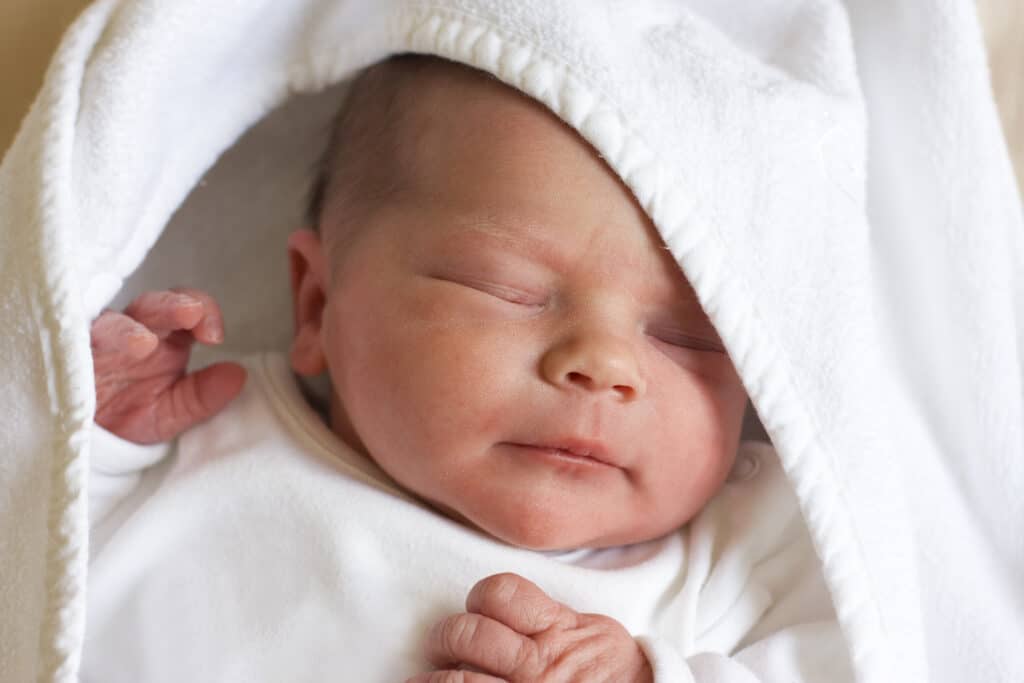As parents, the health and well-being of our children are our top priority, and we’re constantly vigilant for any signs of trouble. For many, the idea of their child suffering from hearing loss is a concerning thought.
Hearing is a critical sense that plays a role in a child’s overall development, including their speech and social skills. Consequently, early detection and intervention can greatly improve outcomes for children with hearing loss. Here’s what you need to know about recognizing signs of hearing loss in babies and the steps to take to treat hearing loss.
Understanding Hearing Loss in Babies
Hearing loss in infants can be due to a variety of causes including genetic factors, complications during pregnancy or childbirth, infections, and exposure to loud noises. Often, hearing loss is detected through newborn hearing screening programs which are standard in many hospitals.
However, for various reasons, hearing loss might not become apparent until later. That’s why parents and caregivers must be aware of the developmental milestones related to hearing and speech.
Early Indicators to Watch For
In the first few months of life, babies typically start to react to loud sounds and recognize voices, especially those of their parents. As they grow, they begin to follow sounds with their eyes and start to imitate noise. Signs that may indicate hearing loss can include:
- No Startle Response: By one month, babies usually startle in response to a sudden loud sound.
- Lack of or Delayed Babbling: By six to eight months, babies generally experiment with making sounds. If your baby isn’t babbling, it could be a sign of hearing difficulties.
- Inattention to Voices: Babies with typical hearing will usually turn their heads toward your voice by six months of age.
- Poor Response to Name: Around seven months, babies often turn their heads when their name is called. A lack of response might indicate a hearing issue.
- Limited Speech Development: By the age of one, most children start uttering single words like “mama” or “dada.” Limited or absent speech development may suggest a potential hearing problem.
If you notice any of these signs or are concerned about your child’s hearing, it is important to take action right away.
What Should You Do If You Suspect Hearing Loss?
If there’s any concern that your baby might be experiencing hearing loss, here are the steps you should take:
1. Schedule a Visit With Your Pediatrician
The first step is to consult with your child’s pediatrician. They can conduct a physical examination to check for any blockage or infection that could be causing temporary hearing difficulties. The pediatrician can also guide you regarding the developmental milestones and, if necessary, refer you to a pediatric audiologist.
2. Get a Professional Hearing Assessment
A pediatric audiologist specializes in testing and diagnosing hearing loss in young children. These professionals have the diagnostic tools to accurately assess the hearing of even very young infants. The test results will provide insight into the degree and type of hearing loss present.
3. Understand the Diagnosis
If your child is diagnosed with hearing loss, it’s important to understand the type (sensorineural, conductive, or mixed), the degree (mild, moderate, severe, or profound), and the impact it may have on their development. Ask questions and gather as much information as possible from the specialists to grasp the specifics of your child’s condition.
4. Early Intervention Programs
Early intervention is key to managing hearing loss. These programs typically offer comprehensive support, including speech and language therapy, family counseling, and information about communication options such as sign language or auditory-verbal therapy.
5. Explore Hearing Devices and Communication Methods.
With advances in technology, there are numerous devices like hearing aids, cochlear implants, and assistive listening devices that might help your child. You may also consider learning sign language as a family to foster communication.
Prevention and Risk Reduction
While not all types of hearing loss can be prevented, there are measures you can take to reduce certain risks:
- Ensure that your infant’s immunizations, including those for diseases that can cause hearing loss like meningitis, are up to date.
- Avoid exposing your child to loud noises, which can damage their hearing over time.
- During pregnancy, maintain a healthy lifestyle and follow your doctor’s advice to minimize the risk of infections that could affect your baby’s hearing.
Contact Us for Pediatric Hearing Support
If you notice any of the signs of hearing loss, it’s important to consult with a pediatric audiologist and have your child’s hearing professionally assessed. Contact us today to evaluate your child’s hearing. We’ll provide guidance on the best course of action for their specific needs.





